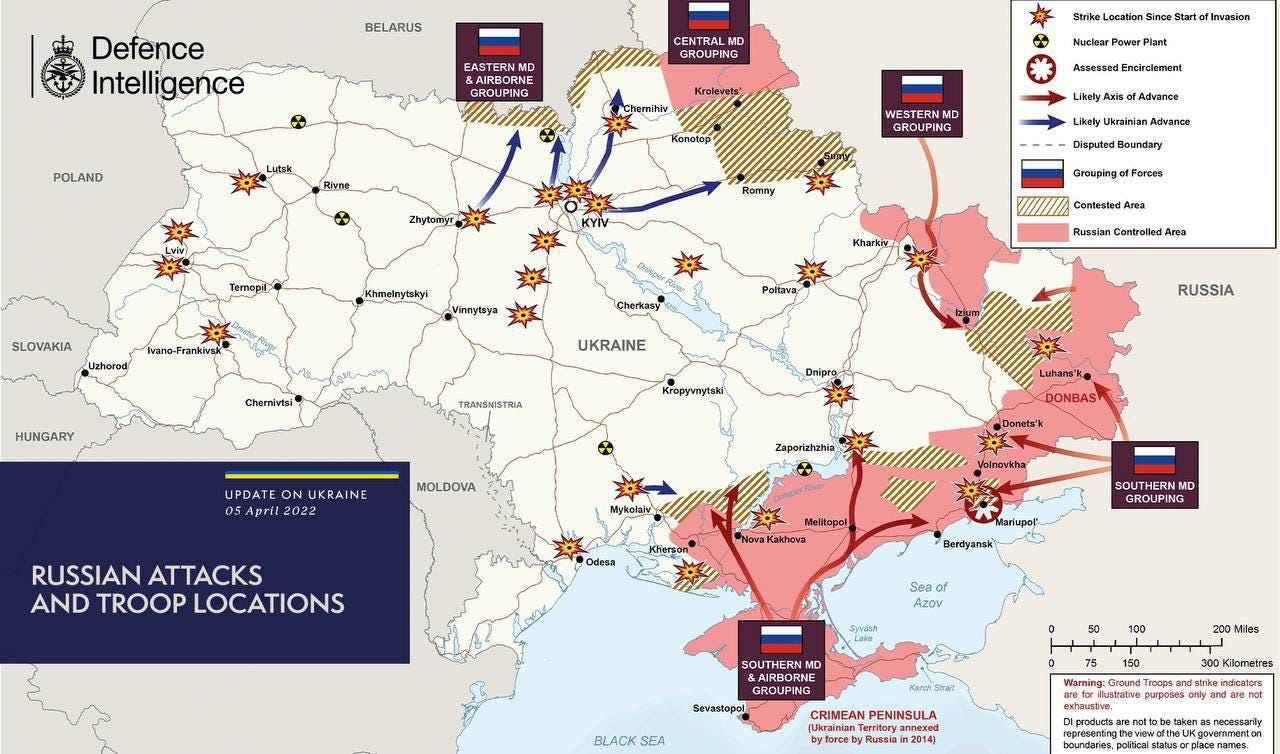
In Ukraine your internationalism can and should be your patriotism.
We wrote abut Borodyanka on Day 9 of Russia’s further invasion. That was March 4. Ukraine’s top cop Iryna Venediktova woke up to the disaster the day before yesterday, saying mass civilian killings there make the blood bath in Bucha look like a picnic.
Let's say that more than a month after a mass murder had devastated Borodyanka, and at a moment when the miasma from the site could still be felt and smelled, a ticket-buying audience finally began paying attention.
For more than eight years, the world needed to know fascists1 in Russia were sending soldiers to Ukraine to commit genocide2. During most of this period, we were told told fighting in eastern Ukraine was partly a civil war involving rebels and separatists opposing the central government in Kyiv. The pace of senseless killing intensified in February 2022.
Political leaders in Europe and journalists talked about the bloodshed as if it was entirely internal to Ukraine, a domestic affair brought on by language politics, identity clashes and historical grievances. Many of the same jingoism-resistant nincompoops made a beeline for chocolate shops in Lviv after Putin’s special operation began.
Don’t take my word for it.




